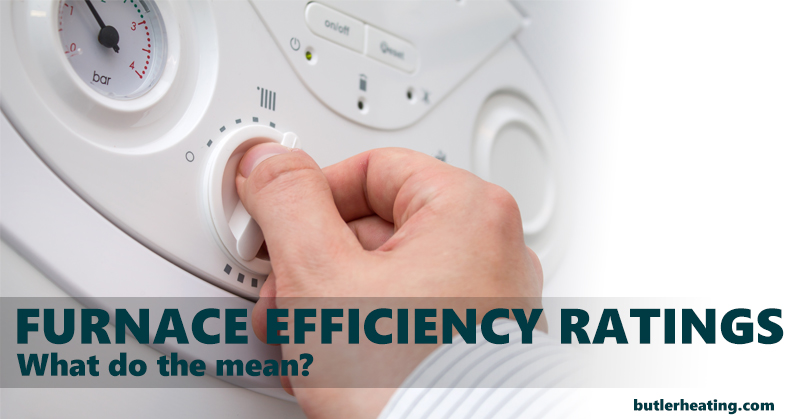Understanding The Ratings For Furnace Efficiency

If you’re in need of a new furnace, one factor to take into account when weighing options is the Annual Fuel Utilization Efficiency (AFUE) rating of each unit. That rating explains how much heat the furnace will produce, in comparison to the amount of energy it requires to produce that heat.
Understanding the AFUE rating
If a furnace is rated at 85 percent AFUE, that means that 85 percent actually becomes heat, while 15 percent of the energy used is lost. It’s important to know that the AFUE rating does not include the potential heat loss that can happen through ductwork, because ductwork in homes varies. Ductwork can lose up to 35 percent of their heating efficiency.
How to figure approximate AFUE ratings on older equipment
While the Federal Trade Commission requires manufacturers to include AFUE ratings on all new furnace systems, older systems may not have a rating or it may be difficult to find that information on older units. Low-efficiency furnaces can be identified by the use of a continuous pilot light. Typically, these units are between 56 and 70 percent efficient. Older models that use a fan to control airflow and have an electronic ignition fall between 80 and 83 percent. Meanwhile, older furnaces that use heat exchangers – where water is removed from the exhaust gas in a condensing unit, and the gas is then sent through a second exchanger – are considered higher in their efficiency. Ratings for this type of furnace fall between 90 and 98.5 percent.
What are your minimum furnace efficiency requirements?
There are government-based minimum furnace efficiency requirements every homeowner needs to be aware of. Non-condensing furnaces are required to be 78 percent efficient, except for those designed for use in a mobile home. Those units are required to be 75 percent efficient.
The Department of Energy (DOE) raised the efficiency requirements for many furnace styles in June of 2011. And while they were set to go into effect in 2013 and 2015, a January 11, 2013 court ruling has put a hold on the DOE increase pending the outcome of the lawsuit.
The requirements for mobile home oil furnaces (75 percent), electric (78 percent), gas-fired hot water boilers (82 percent), oil-fired hot water boilers (84 percent) and oil-fired steam boilers (82 percent) have not changed.
One of our expert HVAC professionals at Butler Heating & Air Conditioning will be happy to help you navigate current laws and what’s necessary for your own home.
In need of a new furnace? Call Butler Heating & Air Conditioning
While condensing systems are more expensive initially than non-condensing units, you save a significant amount in fuel costs over the unit’s life span because they are usually 10 percent more energy efficient. If you need to buy a new furnace, one of our HVAC professionals at Butler Heating & Air Conditioning can help you choose the best system for your needs. Call us, your Dayton HVAC experts, at (937) 262-4846.

